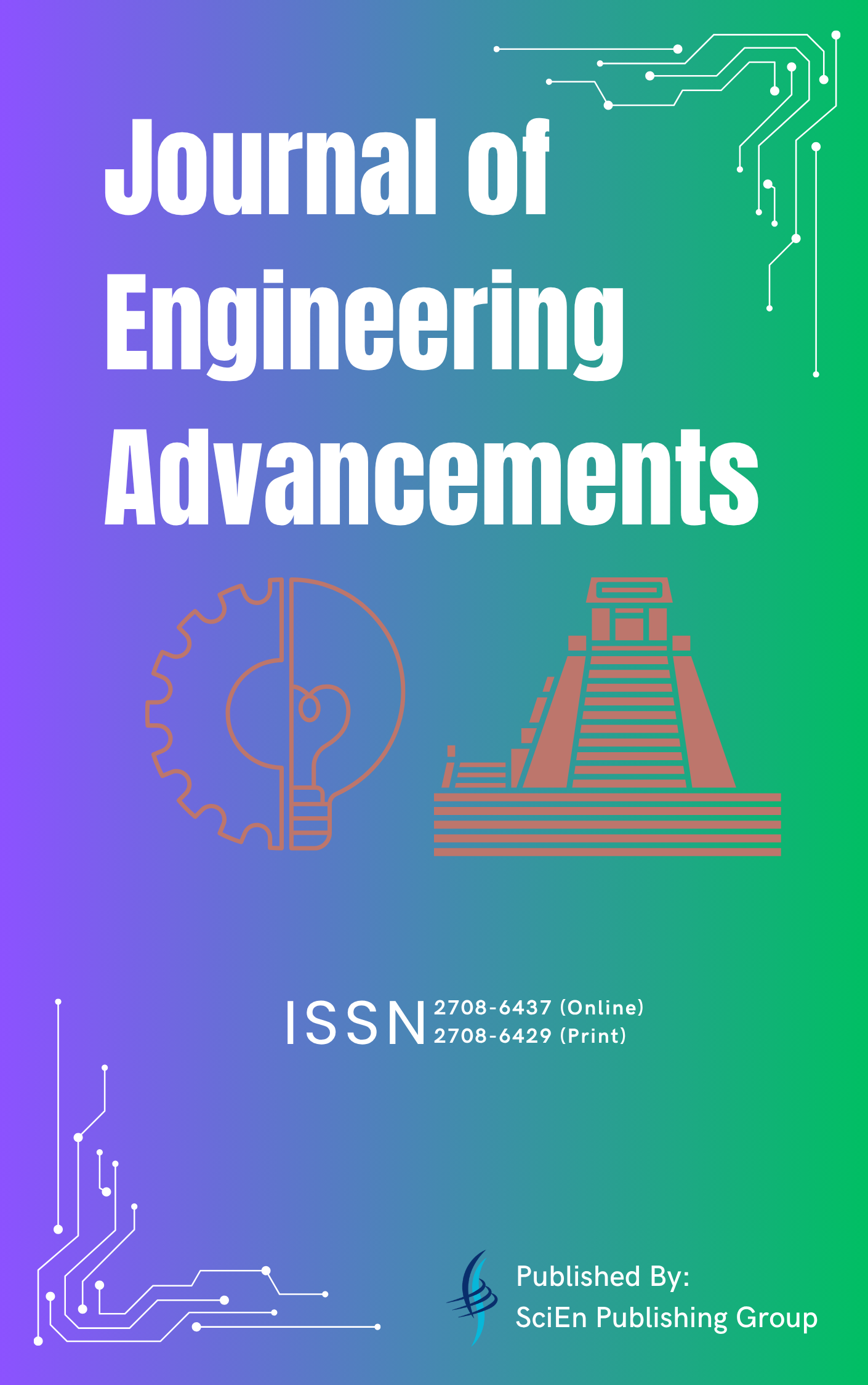Synthesis and Characterization of SiO2 Coated Fe3O4 Nanoparticles by Co-precipitation Method
DOI:
https://doi.org/10.38032/scse.2025.3.20Keywords:
Co-precipitation, Nanoparticles, XRD, SEM, Band gapAbstract
This research investigated the structural and morphological characteristics of Fe3O4 nanoparticles (NPs), coated with a SiO2 shell, produced by co-precipitation method. Triethanolamine (TEA), cetyltrimethylammonium bromide (CTAB), ammonium hydroxide (NH4OH), iron salt (FeCl2.4H2O, FeCl3.6H2O), and tetraethyl orthosilicate (TEOS) are the precursors to form nanoparticles with a magnetite core coated with silica (SiO2). The drying temperature was 40 °C and then the sample was calcined at 550 °C temperature to enhance crystallinity and form a stable core-shell structure. The stability and surface functionality of magnetite (Fe3O4) nanoparticles introduces versatile materials with an extensive variety of uses. X-ray diffraction (XRD) confirmed the crystalline structure with distinct sharp peaks corresponding to Fe3O4-SiO2 phases with average crystallite size of 8.459 nm, and scanning electronic microscopy (SEM) revealed the narrow particle size distribution and exhibiting a spherical morphology. The calculated optical band gap of 3.21 eV represented its usage in optoelectrical field. The prevention from agglomeration and enhanced stability are the benefits of the core-shell nanostructured materials which has made them acting as effective adsorbent in environmental applications such as wastewater treatment, rapid magnetic separation and also in biomedical applications and drug delivery systems.
Downloads
Downloads
Downloads
References
[1] A. M. G. Silva, I. M. Pereira, T. I. Silva, M. R. da Silva, R. A. Rocha, and M. C. Silva, “Magnetic foams from polyurethane and magnetite applied as attenuators of electromagnetic radiation in X band,” J Appl Polym Sci, vol. 138, no. 1, Jan. 2021, doi: 10.1002/app.49629.
[2] V. Gurenko, L. Gulina, and V. Tolstoy, “Sol–gel–xerogel transformations in the thin layer at the salt solution–gaseous reagent interface and the synthesis of new materials with microtubular morphology,” J Solgel Sci Technol, vol. 92, no. 2, pp. 342–348, Nov. 2019.
[3] S. Pan, W. Huang, Y. Li, L. Yu, and R. Liu, “A facile diethyl-carbonate-assisted combustion process for the preparation of the novel magnetic α-Fe2O3/Fe3O4 heterostructure nanoparticles,” Mater Lett, vol. 262, Mar. 2020.
[4] Y. O. Olaseni, Nanostructured Magnetite Coated by Natural Product Extracts to Remove Heavy Metal Ions and Inactivate Bacteria. M.S. thesis, Texas A&M
University-Kingsville, Kingsville, TX, USA, May 2020.
[5] A.G. Roca, M.P. Morales, K. O'Grady, C.J. Serna, Structural and magnetic properties of uniform magnetite nanoparticles prepared by high temperature decomposition of organic precursors, Nanotechnology 17 (2006) 2783–2788.
[6] H. Iida, K. Takayanagi, T. Nakanishi, T. Osaka, Synthesis of Fe3O4 nanoparticles with various sizes and magnetic properties by controlled hydrolysis, J.
Colloid Interface Sci. 314 (2007) 274–280.
[7] D. Maity, S.-G. Choo, J. Yi, J. Ding, J.M. Xue, Synthesis of magnetite nanoparticles via a solvent-free
thermal decomposition route, J. Magn. Magn. Mater. 321 (2009) 1256–1259.
[8] F. Morales, V. Sagredo, T. Torres, G. Márquez, Characterization of magnetite nanoparticles synthesized by the coprecipitation method, Cienc. e Ing. 40 (2019) 39–44.
[9] K. Faaliyan, H. Abdoos, E. Borhani, and S. S. S. Afghahi, “Core-shell nanoparticles for medical applications: effects of surfactant concentration on the characteristics and magnetic properties of magnetite-silica nanoparticles,” Nanomed J, vol. 6, no. 4, pp. 269–275, Oct. 2019.
[10] M. Namvar-Mahboub, E. Khodeir, M. Bahadori, and S. M. Mahdizadeh, “Preparation of magnetic MgO/Fe3O4 via the green method for competitive removal of Pb and Cd from aqueous solution,” Colloids Surf A Physicochem Eng Asp, vol. 589, Feb. 2020.
[11] H. Qi, B. Yan, W. Lu, C. Li, and Y. Yang, "A Non-Alkoxide Sol-Gel Method for the Preparation of Magnetite (Fe3O4) Nanoparticles," Current Nanoscience, vol. 7, no. 3, pp. 381-388, 2011.
[12] F. Morales, G. Márquez, V. Sagredo, T. E. Torres, and J. C. Denardin, “Structural and magnetic properties of silica-coated magnetite nanoaggregates,” Physica B Condens Matter, vol. 572, pp. 214–219, Nov. 2019.
[13] Z. I. Takai, M. K. Mustafa, S. Asman, and K. A. Sekak, "Preparation and Characterization of Magnetite (Fe3O4) Nanoparticles by Sol-Gel Method," International Journal of Nanoelectronics and Materials, vol. 12, no. 1, pp. 37-46, Jan. 2019.
Published
Conference Proceedings Volume
Section
License
Copyright (c) 2025 Shamima Akhter Urmi, M. Bodiul Islam, M. Mosiul Haque, M. Sadman Shahriar, Abdullah Al Mahmood (Author)

This work is licensed under a Creative Commons Attribution 4.0 International License.
All the articles published by this journal are licensed under a Creative Commons Attribution 4.0 International License


